Advertisement
Need More Calcium? Find Out the Top 17 Foods to Eat
Advertisement
Calcium is pivotal for robust bone structure, dental integrity, nerve function, and muscle health, playing a critical role across various bodily functions. Its significance is particularly pronounced in preventing osteoporosis among older adults. For optimal absorption, calcium requires the support of vitamins D and K, highlighting the importance of a diet rich in these nutrients.
Emphasizing natural food sources over supplements ensures a harmonious intake of calcium alongside essential vitamins, fostering comprehensive health benefits. This holistic approach to nutrition underscores the interconnectedness of dietary choices and overall well-being, advocating for a balanced and nutrient-rich diet.
Dairy Milk
Dairy milk is a primary source of calcium, offering around 300 mg per cup. It's also enriched with vitamins D and B12, essential for bone health and energy levels. Consuming dairy milk can significantly contribute to meeting daily calcium needs, supporting bone density, and aiding in the absorption of calcium, thanks to its vitamin D content. Its versatility in various diets makes it an indispensable option for those aiming to enhance their calcium intake.

Advertisement
Yogurt
Yogurt is notable for its calcium content, providing roughly 300 mg per cup, alongside probiotics that support digestive health. Opting for plain, low-sugar varieties maximizes health benefits, including bone density improvement. Yogurt's versatility in diets enhances its appeal, making it a popular choice for a nutritious, calcium-rich addition to meals, further supporting overall health and well-being through its blend of essential nutrients.
Advertisement
Cheese
Cheese, particularly hard varieties like Parmesan, is rich in calcium, with about 331 mg per ounce. It also offers protein, phosphorus, and vitamins, enhancing meals with both flavor and nutritional value. Moderate cheese consumption can significantly boost calcium intake, contributing to bone health and muscle maintenance, making it a flavorful and nutritious component of a balanced diet.
Advertisement
Eggs
Although eggs are not the highest in calcium, they provide a valuable amount alongside vital vitamins and minerals. They offer a versatile source of high-quality protein, including vitamins A, D, and B12, crucial for overall health. Incorporating eggs into your diet can enhance the nutritional value of meals, supporting bone health and providing a convenient option to increase dietary calcium content.

Advertisement
Kale
Kale is a nutrient-dense leafy green, offering calcium, vitamins A, C, K, and fiber. It contributes to bone health and provides antioxidants for overall well-being. Kale's inclusion in your diet is an excellent way to naturally increase calcium intake, supporting not only bone strength but also cardiovascular health and immune function, making it a versatile ingredient in a variety of dishes.

Advertisement
Broccoli
Broccoli, a cruciferous vegetable, is rich in calcium, vitamins C and K, and fiber. It supports bone health and offers antioxidants that promote overall well-being. Including broccoli in meals adds nutritional value, color, and texture, making it a versatile and beneficial vegetable for increasing calcium intake and supporting immune health and digestion.

Advertisement
Almonds
Almonds are a nutritious snack, providing calcium, protein, and healthy fats, along with magnesium and vitamin E, supporting heart health and offering antioxidant benefits. A quarter-cup serving can significantly contribute to daily calcium needs, making almonds a smart choice for a nutritious snack, enhancing dietary calcium intake with their crunch and flavor.
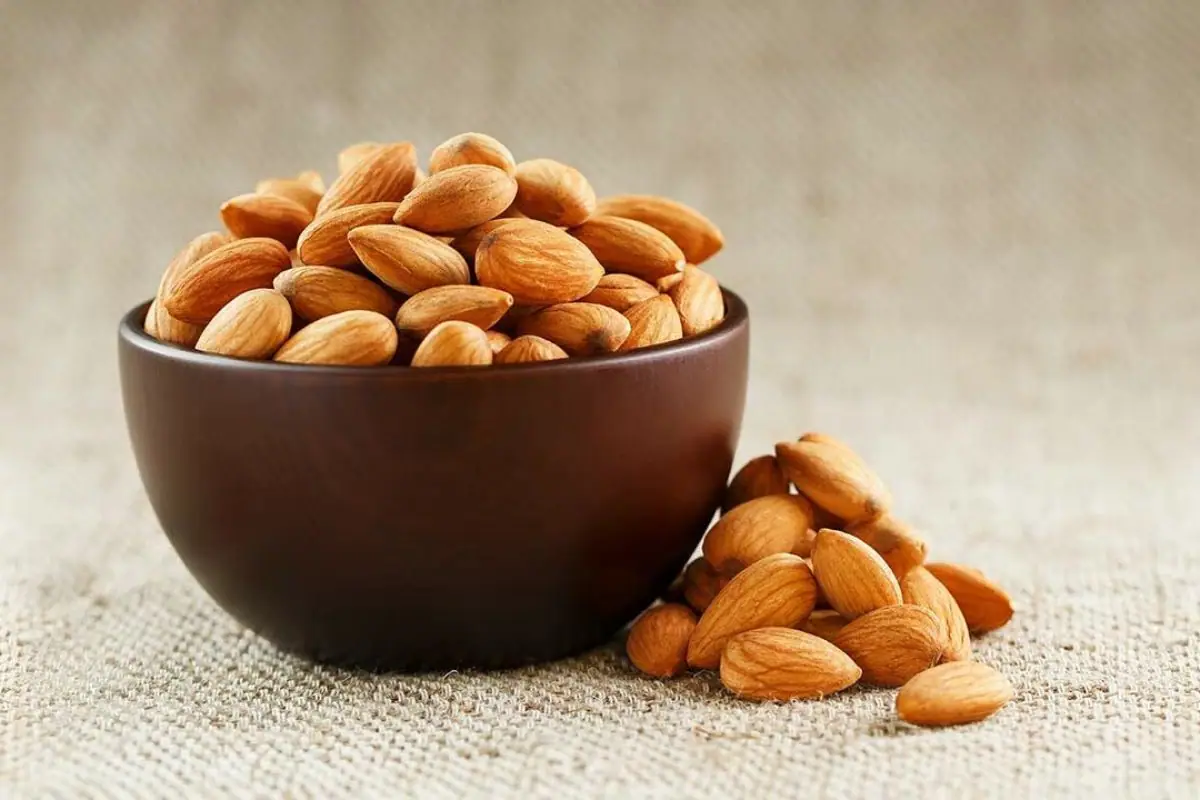
Advertisement
Sardines
Sardines, rich in calcium due to their edible bones, offer about 325 mg per 3-ounce serving, along with omega-3 fatty acids and vitamin D. They are a heart-healthy option that supports bone density, making them a wise dietary choice for increasing calcium intake, enhancing meals with both nutritional value and flavor.

Advertisement
Salmon
Canned salmon with bones is an excellent source of calcium, providing around 181 mg per half can, alongside omega-3 fatty acids and vitamin D. It enhances meals with both flavor and nutritional value, making it an excellent option for increasing dietary calcium and supporting bone and heart health.
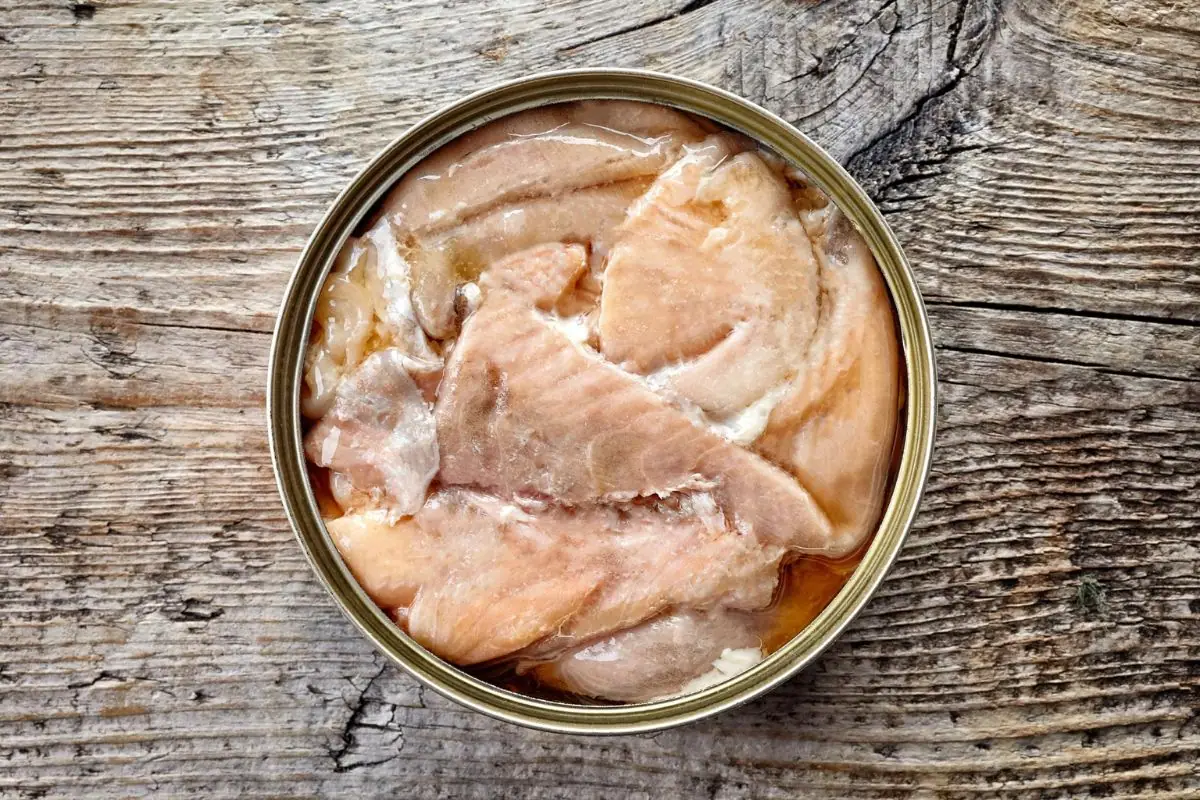
Advertisement
Tofu
Tofu, often fortified with calcium, provides about 253 mg per half-cup serving, making it a significant source for vegetarians and vegans. It offers high-quality protein and iron, supporting muscle health and bone density. Tofu's versatility in meals, from stir-fries to smoothies, makes it an excellent choice for incorporating more calcium into a plant-based diet.

Advertisement
White Beans
White beans offer calcium, fiber, and protein, with a cup of cooked beans providing about 161 mg of calcium. They support bone health and contribute to heart health and digestive well-being. Their mild flavor and versatility in dishes, from soups to salads, make them a perfect ingredient for a nutritional boost.
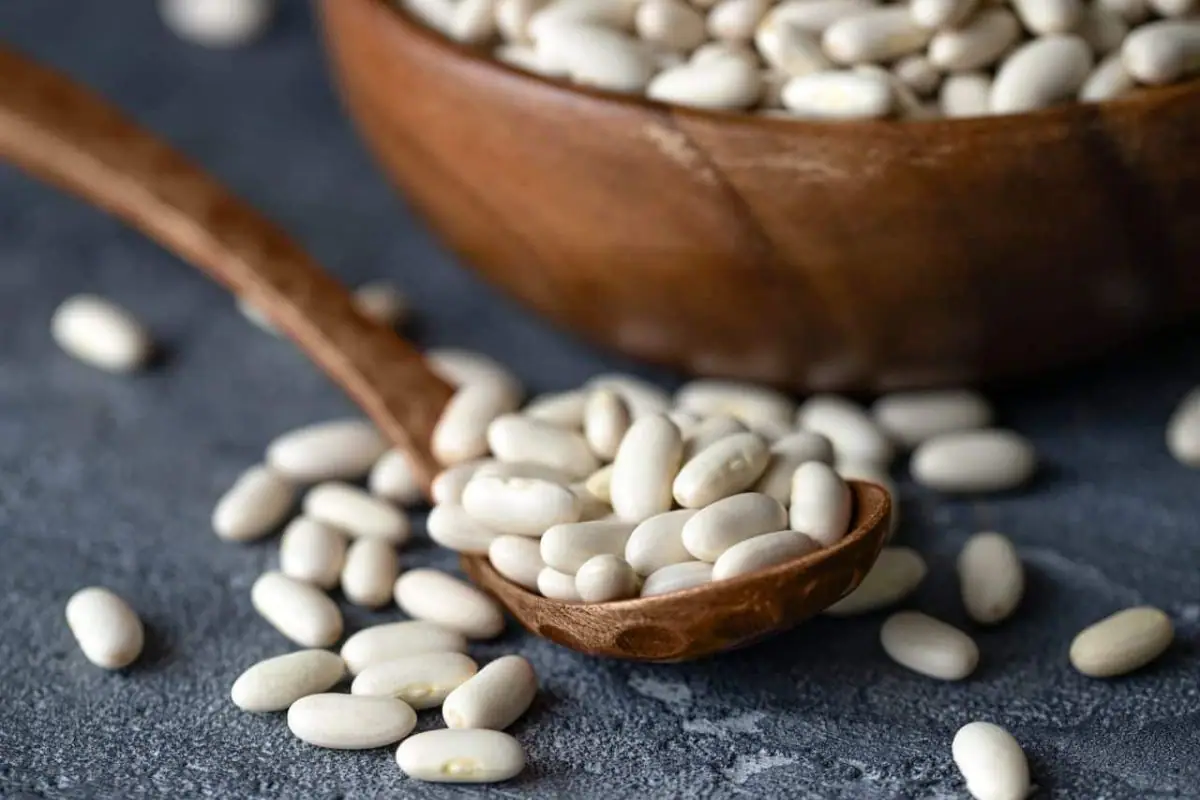
Advertisement
Figs
Dried figs are a sweet, nutritious snack, offering calcium, fiber, and antioxidants. A half-cup serving provides about 120 mg of calcium, making figs a delightful way to enhance calcium intake. Their unique flavor and nutritional profile make them a valuable addition to a balanced diet, supporting bone health and providing antioxidant protection.

Advertisement
Oranges
Oranges and fortified orange juice provide a refreshing taste and calcium, with a medium orange containing about 60 mg of calcium. Including oranges in your diet supports immune health and bone strength, making them a tasty and healthful choice for increasing daily calcium intake.

Advertisement
Oatmeal
Fortified oatmeal offers a warm breakfast option with about 150 mg of calcium per serving, along with fiber for digestive health. Its versatility allows for numerous additions, making it a nutritious way to start the day with a calcium boost, supporting bone health and providing a comforting meal.
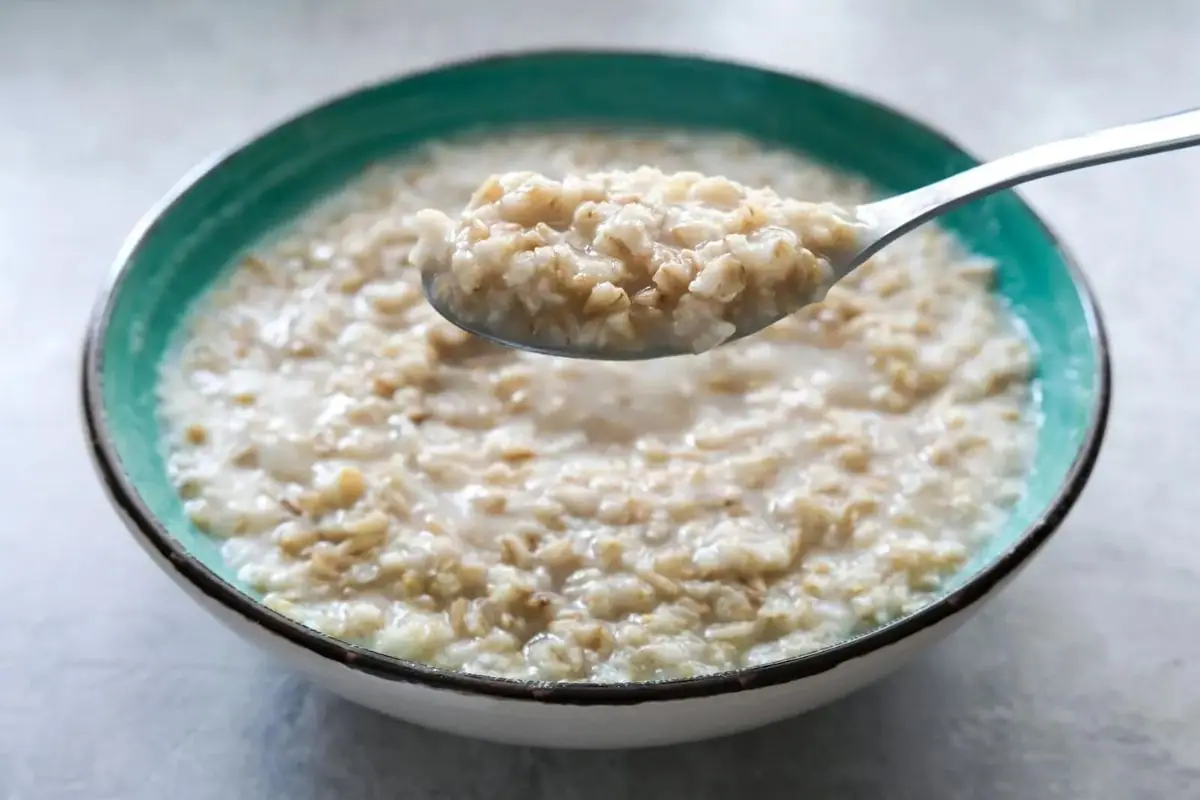
Advertisement
Soy Milk
Fortified soy milk, a dairy-free option, provides around 300 mg of calcium per cup, along with vitamins A and D. It supports bone health and is a great option for plant-based diets, ensuring those avoiding dairy can still meet their calcium needs effectively.

Advertisement
Chia Seeds
Chia seeds, offering about 177 mg of calcium per two tablespoons, are a potent addition to any diet. They provide omega-3 fatty acids and fiber, enhancing meals with nutritional value. Their ability to form a gel makes them perfect for puddings and smoothies, offering a nutritious boost.
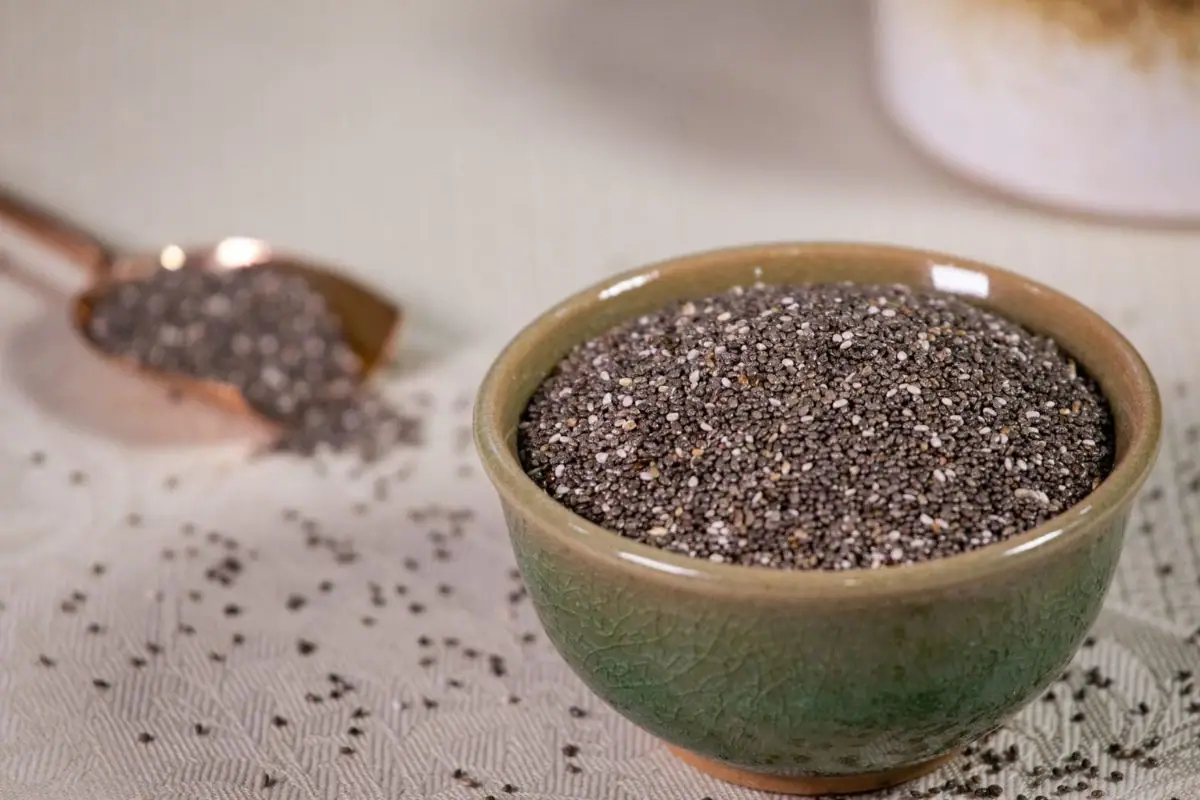
Advertisement
Quinoa
Quinoa, a complete protein, also offers a good amount of calcium, with about 31 mg per cup cooked. It's a versatile grain that can enhance meals, making it an excellent choice for increasing calcium intake through whole grains, supporting bone health and overall nutritional well-being.
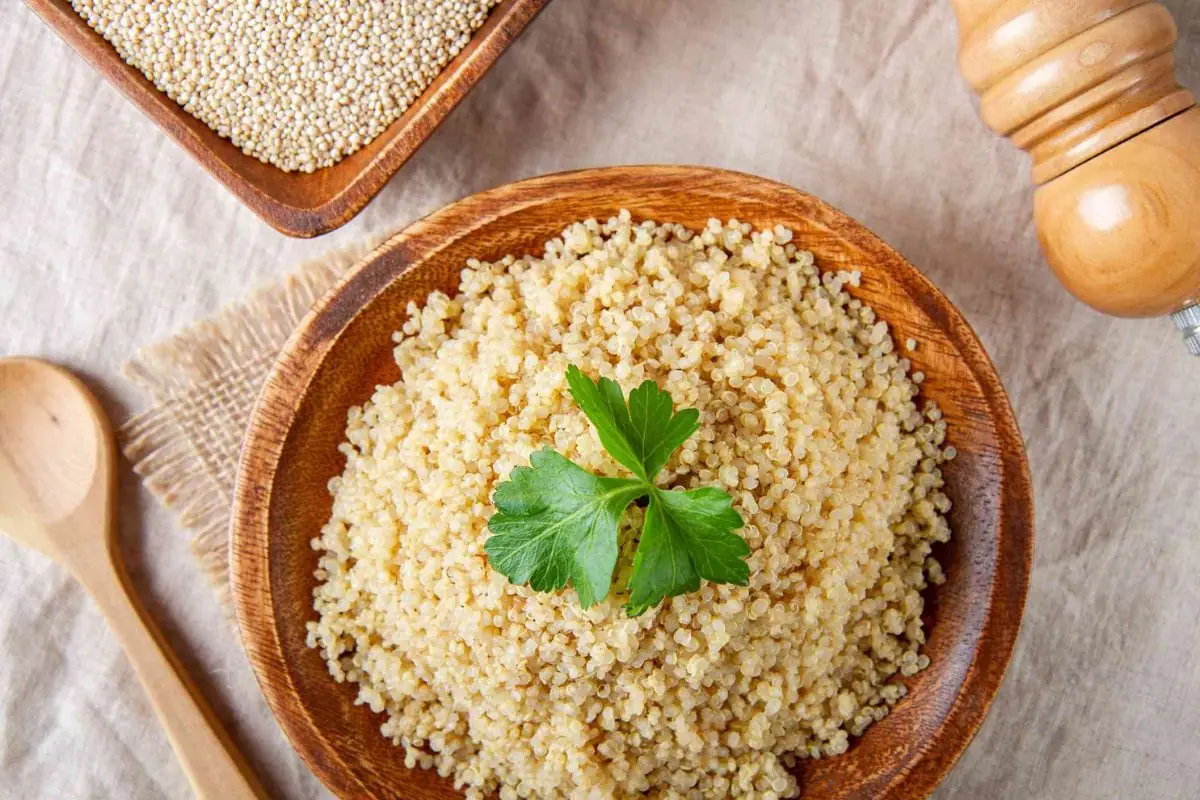
Advertisement
Spinach
Spinach, rich in calcium, iron, and vitamins A and C, offers a nutritional boost in both raw and cooked forms. A cup of cooked spinach provides about 245 mg of calcium, making it a powerful leafy green for supporting bone health and enhancing meals with its nutritional profile.

.png)




